Biography
In the second half of the XIX century, Herbert Spencer was among the key figures of philosophical thought. Later, admirers compared him with Crate and Aristotle. However, most of the contemporaries of Spencer could not appreciate his ideas. What a colossal contribution made this British thinker in the development of philosophy and sociology, they spoke only in the 20th century, and today its scientific heritage is actively rethought.Childhood and youth
Herbert Spencer was born on April 27, 1820 in Derby, Devonshire county. The future philosopher grew up in the family of a school teacher. Parents of Spencer, besides him, put on the light of six more children, five of whom still died in infancy.
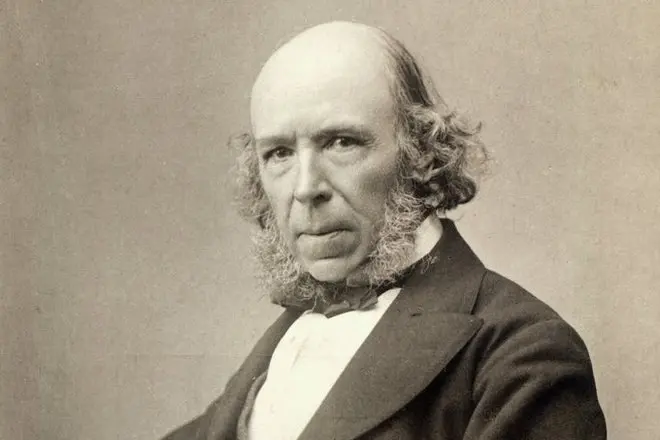
Herbert did not differ strong health, so the father decided not to give his son to school and personally engaged in his upbringing and education. The boy took over his parents and knowledge, and personal qualities: in autobiographical notes, the philosopher claimed that punctuality, independence, with a strict consequence of his principles, he learned from his father.
Working out the educational program for her son, Spencer Senior carefully approached the selection of literature. Herbert quickly addicted to reading, and although his success on school subjects could not be called shiny, the boy could not be denied inquisitive, rich fantasy and observation.
At 13, parents were going to send him to the uncle - he was ready to take on the training of a young man for admission to Cambridge. However, Spencer, skeptically believed to formal education, did not enter the university.
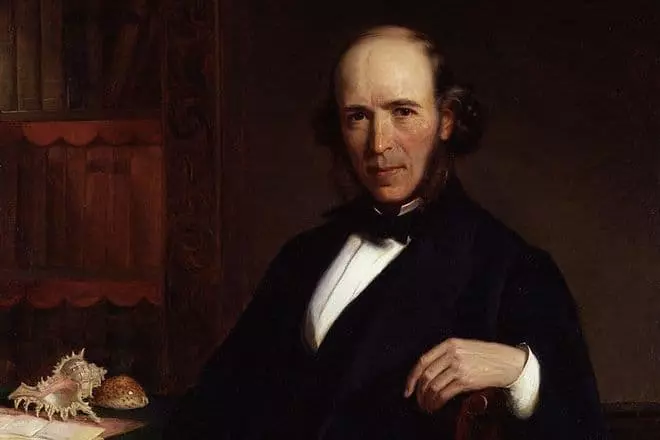
In the fall of 1837, Herbert, having gone as a railway engineer, moved to London. But after 3 years later he left the capital and returned home. There Spencer tried the strength in the study of mathematics, but since he did not develop with accurate sciences, quickly cooled to this venture. But in the young man I woke up interest in journalism. In the radical newspaper "Nonconformist", he published 12 articles on political and social topics. In 1843, they came out with a separate book.
In subsequent years, Herbert lived between London and Birmingham, trying herself in various fields of activity. He wrote the plays, poems and poems, published his own magazine, worked as an engineer and architect. At the same time, the young man did not stop learning, got acquainted with the works of British and German thinkers and was preparing to publish his own book.
Philosophy and sociology
The first work of Spencer, entitled as "social static", was published in 1851. In it, the philosopher acted as the founder of the theory of justice, which was subsequently developed in other works. The basis of the book was the reasoning on how the balance in the state can be maintained. Herbert believed that such a balance was possible if the social structure was subordinated by the law of freedom and the equity system arising from them.
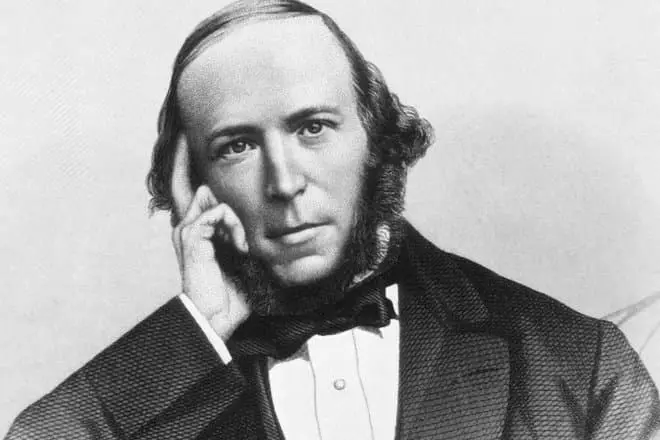
The reading public met the "social statics" favorably, but the author himself decided that they were not all able to properly assess the depth of his work. But the composition of Spencer attracted the attention of prominent British specialists, among whom Thomas Huxley, George Eliot, Stewart Mill.
Communicating with them, Herbert discovered new names in modern philosophy - one of the new comrades, Mille, introduced him to the works of Auguste Kont. Finding that some ideas of the Frenchman echoed with his own, the thinker felt wounded. Subsequently, Spencer has repeatedly emphasized that CONT did not have the slightest influence on his views.
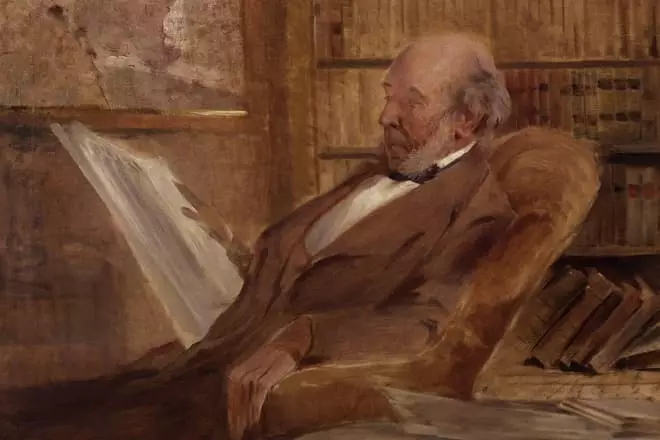
In 1855, the Treatise of Psychology, published in two volumes came out. In him, Herbert described his own concept of associative psychology. This work was given to the author hardly, took a lot of spiritual and physical forces. In the biography written by him, the thinker admitted that at the end of his nerves came to a terrible state and he barely completed an essay. But on this tests did not end. "The foundations of psychology" did not cause close interest among readers, the costs did not pay off, and Spencer remained without livelihood.
Friends who organized a preliminary subscription to the "Synthetic Philosophy" a preliminary subscription to the "System of Synthetic Philosophy", in which Herbert had invested himself. The process of work was painful for a man - let me know about herself, the overwork, comprehended by him during the "foundation of psychology". Nevertheless, in 1862 the first part was published, called the "Basic Open". In 1864 and 1866, two volumes of "bases of biology" were published.
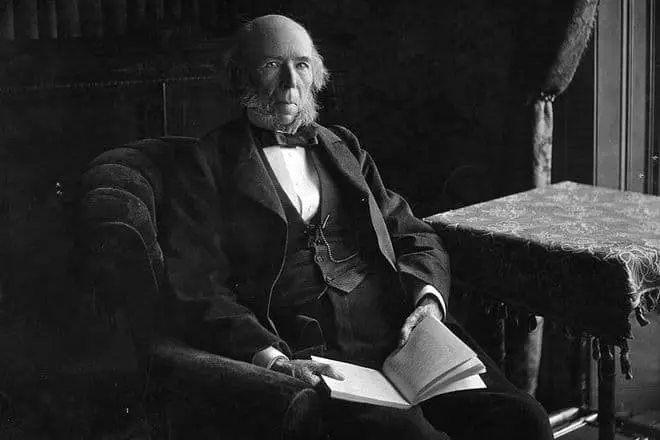
At the homeland of the philosopher, both essays did not succeed, readers from Russia and America were interested. Spencer fans from the new world were even sent to the abolition of the author of the check for $ 7 thousand so that he covers the cost of the publication and continued the release of the conceived series of books. To friends had to work hard to persuade Herbert to take these funds. The thinker until the latter refused generous monetary help, but in the end surrendered.
In 1870 and 1872, the "Grounds of Psychology" came out. At the same time, Spencer managed to work on another essay dedicated to sociology. True, it could not collect the necessary material alone alone - with age, the vision of the philosopher has deteriorated so much that he had to hire the secretary.
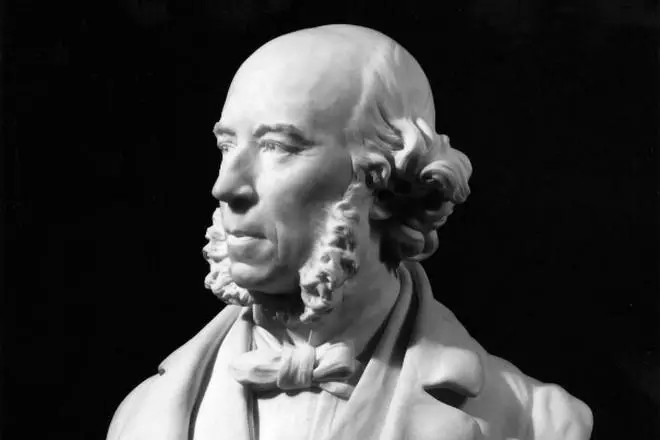
Together they systematized data on the social institutions of different nations, enters information into special tables. The material seemed to Herbert so self-reliable that he decided to publish him a separate book. The first part of the "descriptive sociology" was published in 1871, the publication of other 7 volumes continued until 1880.
The first book, brought by Spencer, commercial success was the "Study of Sociology" (1873). She wanted to prevent the release of "bases of sociology" (1877-1896) - according to the writer of the author, a peculiar introduction was required, which would allow readers to understand the new science. The last works of Herbert became the "base of ethics" (1879-1893), the work that put the point in the "Synthetic Philosophy" system.

The British thinker adhered to positivism - the philosophical flow, originated in France. His followers believed that classic metaphysics was not able to answer the urgent questions of modern science. They were not interested in unattainable, speculative knowledge, much more value they saw in empirical studies. Spencer, along with the founder of the current by Auguste, and John Millem, became the representative of the first wave of positivism.
The theory of evolution developed by Herbert was widespread. According to her, evolution is the basic law of development inherent in all phenomena. It is characteristic of transitions from incoherence to connectivity, from homogeneous to heterogeneous and from a certain indefinite one. The end stage of evolution on Spencer is equilibrium - for example, progressive and conservative forces in society. This theory of the philosopher was used to analyze social, biological, psychological and other phenomena.
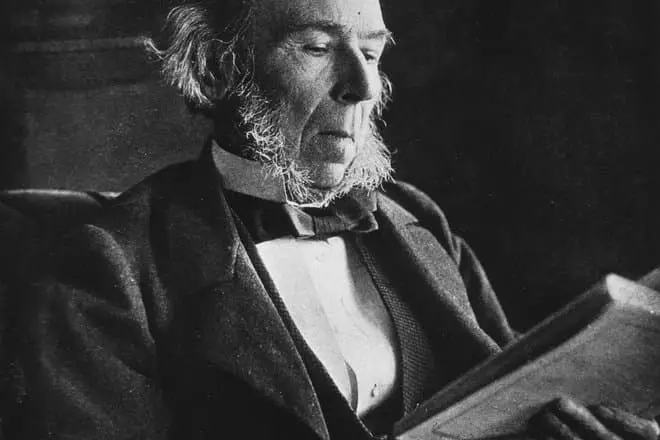
Herbert also spoke by the author of the organic theory. The company seemed to him as a living organism, which increases in the mass, becomes more complicated, lives as a whole, at the same time, individual cells (in society people are analogous) are constantly changing: some die, but new people come to shift. State institutions philosopher compared with individual parts of the body performing certain functions.
In addition to the monumental labor "System of Synthetic Philosophy," Spencer issued a number of books, among which - "appropriate borders of state power" (1843), "Man and the State" (1884), "Facts and Comments" (1902) and others.
Personal life
About the personal life of the philosopher is not known as much. The main reason for his loneliness lies in the fact that all her Herbert devoted to work. In 1851, the thinker raised, looking for him a suitable wife, was removed to send it to the crown.
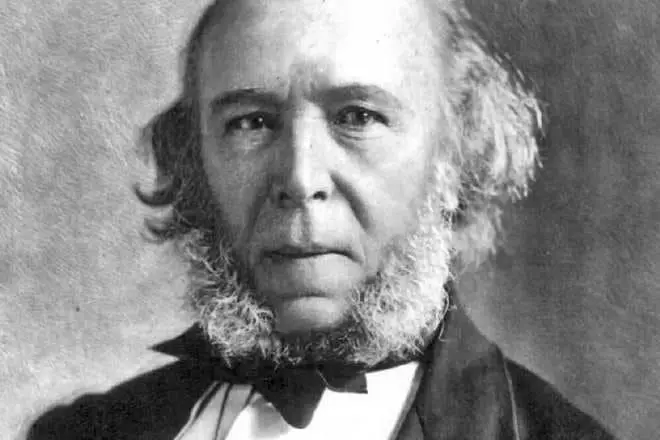
However, these plans were not destined to be realized - having acquainted with the girl, Spencer refused marriage. This decision he substantiated the fact that the bride is too developed. In the future, Herbert did not create his own family, all his thoughts turned to science and books.
Death
Herbert Spencer died on December 8, 1903 in Brighton. He was buried on the Highgate Cemetery in London, next to the ashes of another outstanding philosopher XIX century - Karl Marx. The death of the British thinker was preceded by years of illness - at the end of his life, he no longer got up from bed.

Written by the "autobiography" was published in 1904, and readers of the bold books from the counters. The composition of Spencer was told long before being published, numerous pre-orders came to publishers. On the first day, sales "Autobiography" was redeemed by the submission, the reading public did not embarrass even the impressive price.
Bibliography
- 1842 - "Proper borders of state power"
- 1851 - "Social Static"
- 1861 - "Education mental, moral and physical"
- 1862-1896 - "Synthetic philosophy system"
- 1879 - "Ethics Data"
- 1884 - "Man and State"
- 1885 - "Philosophy and Religion. Nature and reality of religion "
- 1891 - "Essay: scientific, political and philosophical"
- 1891 - "Justice"
- 1902 - "Facts and Comments"
